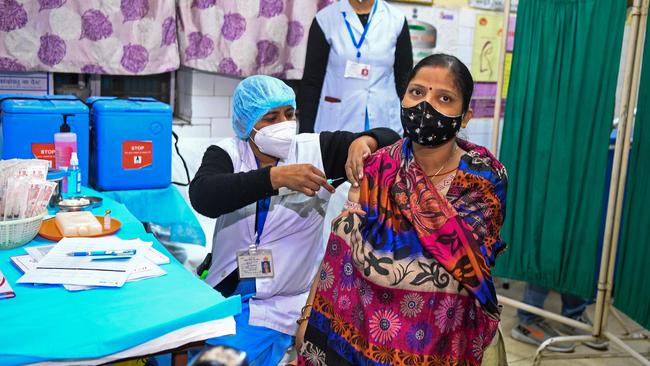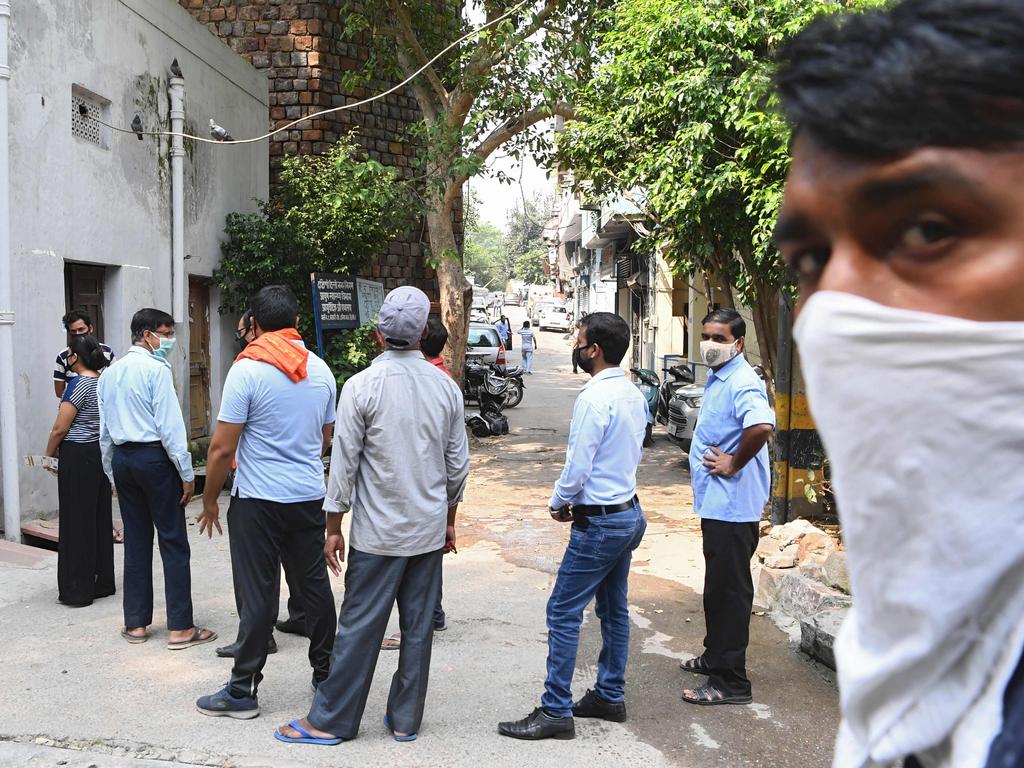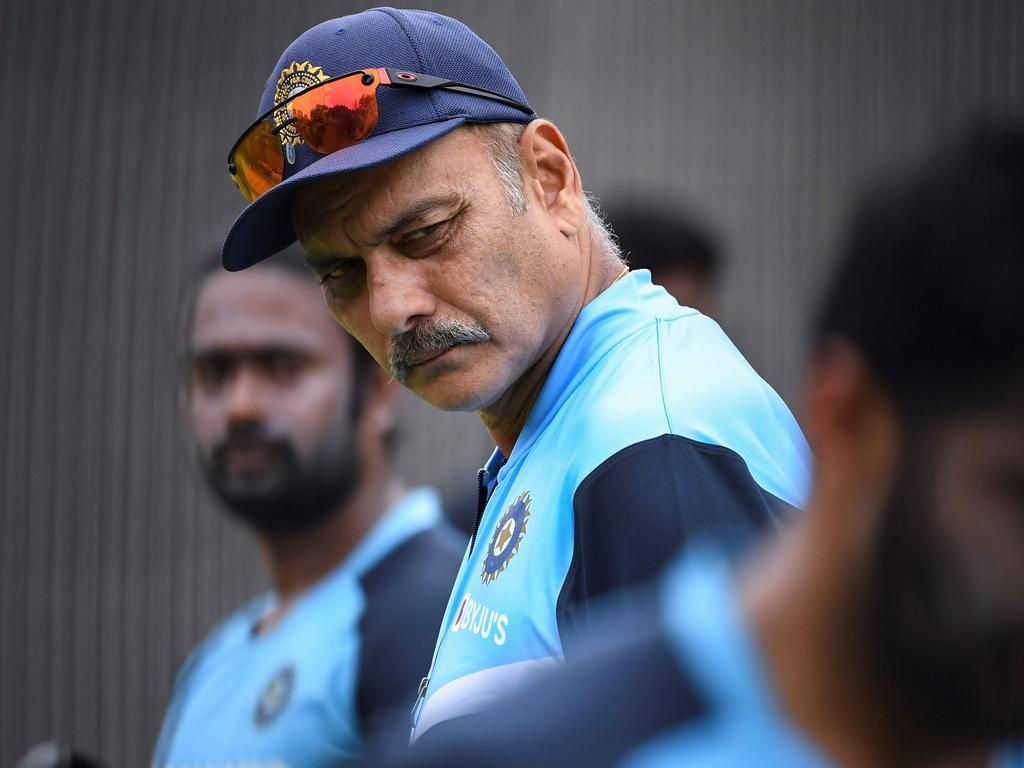Indian green light to kick off one of world’s biggest vaccination drives
India has authorised the emergency use of two coronavirus vaccines kick off one of the world’s biggest vaccination drives.

India has authorised the emergency use of two coronavirus vaccines developed by AstraZeneca and Oxford University and by local pharmaceutical firm Bharat Biotech, the country’s drug regulator said on Sunday.
“The … vaccines of Serum Institute (AstraZeneca/Oxford vaccine) and Bharat Biotech are being approved for restricted use in emergency situations,” the Drugs Controller-General of India, V.G. Somani, said in New Delhi.
Prime Minister Narendra Modi tweeted the fast-track approvals were “a decisive turning point to strengthen a spirited fight” that “accelerates the road to a healthier and COVID-free nation”.
India is the world’s second-most-infected nation with more than 10.3 million cases and almost 150,000 deaths, although its rate of infection has come down from a mid-September peak of more than 90,000 cases daily.
The approval is expected to kick off one of the world’s biggest vaccination drives in the country of 1.3 billion. The government has already been holding nationwide drills ahead of the mass inoculation drive and 96,000 health workers have been trained to administer the shots.
Mr Somani said the drug regulator would “never approve anything if there is the slightest safety concern”. “The vaccines are 100 per cent safe,” he said, adding that side effects such as “mild fever, pain and allergy are common for every vaccine”.
The Serum Institute of India, the world’s biggest manufacturer of vaccines, has said it was making between 50 and 60 million doses a month of the AstraZeneca/Oxford vaccine. Serum Institutes chief executive Adar Poonawalla tweeted after the approvals that the vaccine would be “ready to rollout in the coming weeks”.
The coronavirus has killed more than 1.8 million people globally since emerging in China in December 2019, but experts fear the worst is yet to come, predicting a sharp rise in infections and deaths after weeks of holiday gatherings.
Countries across the world tightened restrictions on Saturday to fight a resurgence in the coronavirus, as the EU offered to help drug companies expand vaccine production to improve distribution “bottlenecks”. From local curfews to alcohol bans and complete lockdowns, governments are trying to tackle a surge in cases.
French police booked hundreds of new year revellers on Saturday for flouting anti-COVID measures at an illegal rave.
In Bangkok, the city’s nightlife shut down following a ban on bars, nightclubs and restaurant alcohol sales, among a raft of restrictions aimed at curbing the country’s rising virus toll. Public schools in the Thai capital are to close for two weeks. An outbreak last month at a seafood market has led to a resurgence of the virus, with infections detected in 53 of Thailand’s 77 provinces.
In Tokyo, the city’s governor asked Japan’s government to declare a new state of emergency as the country battles a third wave, with record numbers of new cases.
South Korea extended its curbs until January 17 in the greater Seoul area, and a ban on gatherings of more than four people will be widened to the whole country.
Delays in getting the vaccines in Europe were not the fault of the EU, said the bloc’s health commissioner Stella Kyriakides. “The bottleneck at the moment is not the volume of orders but the worldwide shortage of production capacity,” she said.
The bloc would help drug companies in their efforts to expand production. “The situation will improve step by step.”
Veteran US talk show host Larry King has been hospitalised with the virus. CNN said King had been hospitalised for more than a week at Cedars Sinai Medical Centre in Los Angeles. The 87-year-old has Type 2 diabetes and has had several heart attacks, lung cancer and suffers from angina.
AFP







To join the conversation, please log in. Don't have an account? Register
Join the conversation, you are commenting as Logout